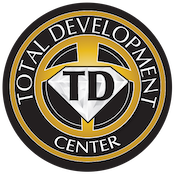ATTN HS Juniors & Seniors: Your Ideal College Prep Checklist

You’re finally in your last two years of high school. Whether you’re a new junior or a rising senior, there’s a lot to be excited about, but a lot to get done. While you may be tempted to slack a bit here and there, careful planning and due diligence will help you land the college education of your dreams.
Below is a college prep checklist of things you need to have on your radar from this coming fall all the way through until graduation.
11th GRADE College Prep Checklist
Fall
- Make a list of all the things you’re good at, interested in, and want to study and do in college. This will allow you to narrow down your college choices.
- Make sure your class schedule matches what you need for college entrance. Next semester or next year will be too late to make up any missing classes. Don’t forget to check in about AP classes, too!
- Join a club, take part in sports, apply for a leadership role, or get involved in a religious or community group. These extra-curricular activities will position you well on your college application.
- Learn about colleges. Don’t forget to explore what’s close to home. Learn how to start your college search here.
- Attend college and career events. Will there be any college night at your school? If so, plan to attend with your parents or mentor. (Learn the benefits of a mentor here.)
- Take the PSAT in October. This will help you prepare for your spring SAT. If you need help with fees, talk to your school counselor.
- Stay organized! Have one spot to keep all your college search information. You’ll appreciate this as you accumulate more and more information.
- Estimate your financial aid need. As you begin to explore colleges, notice room, board, tuition and other fees. This will let you know what type of financial aid to pursue this year and next.
- Prepare for SAT or ACT in the spring. There are great online resources to help you do this:
Winter
- Sign up for ACT or SAT and take both during December or January. This will provide you two scores to see which test you had a higher score and will guide you to take the higher scoring exam again in May or June. Also, this informs you which specific test to practice for instead of practicing for both.
- Start looking for financial aid. Explore what’s available.
- Each college usually has a page about financial aid opportunities.
- Check CollegeBoard, FastWeb, and here at The Total Development Center for scholarships.
- Talk to your school counselor about local aid opportunities.
- Talk with your parents and mentor about your college plan. Explore ways they can help.
- Solidify your senior year classes. Meet with your school counselor about what classes you need to meet graduation and college requirements.
Spring
- If you’re considering a military route (ROTC or Officer School), meet with your counselor. The application process starts this summer!
- Narrow your college list. Start eliminating colleges that aren’t the right fit. Your list should be down to about 15-20.
- Take SAT or ACT before the end of your Junior year. Choose the test based on how well you did on the previous test you took during the Winter.
- Gather documents for financial aid. Needs-based scholarships require both your tax returns and your parent’s returns. It may take time to get all this paperwork together.
Summer
- Register with the NCAA and NAIA if you’re considering any type of college athletics. Register at the end of May or beginning of June prior to attending camps so you can let coaches know by showing them your ID number for NCAA and NAIA. Learn more about the process here.
- Create your Federal Student Aid (FSA) ID. You’ll want this completed before you fill out your FAFSA form in the fall.
- Create a resume. If you haven’t completed this for your job search, have it on hand for your college application.
- Find a full or part-time job. This not only gives you great experience, it looks great on your college application as well.
- Download college applications. These applications may all be different. Check all due dates and put them on your calendar so you’re not late with anything.
- Visit local colleges. Start exploring any local college choices. Here’s how to plan your college visit. Also, contact us at The Total Development Center for our information on planning a college visit. We will be delighted to assist you.
12th GRADE College Prep Checklist
Fall
- Track due dates. You have college application dates, financial aid dates, and your homework and exam dates to keep track of. Put them all on a calendar so you have a high level and weekly view of everything in one location.
- Retake SAT. If you need to improve your score, retake this test. If you need help with fees, talk to your school counselor about a fee waiver.
- Send SAT scores to colleges.
- Complete your FAFSA. This federal student aid provides $112 billion to help students pay for college or career school each year.
- Complete your CSS Profile. This online application determines eligibility for financial aid. You’ll need tax returns, W2s, and any other record of income for the current year.
- Prepare for any early decision applications. If you know exactly what college you’ll be attending, don’t miss these fall deadlines.
- Ask for recommendation letters. Include due dates and check back in with everyone. Learn more tips for the best recommendation letters here. We at The Total Development Center will help students learn tips for the best recommendation letters.
- Write first draft of college essay. You don’t want to write this one last minute — it’s carries the most weight in the application process. Learn how to write a great college essay here.
- Apply to colleges. This isn’t a one-and-done form. Read the instructions carefully and make a list of what you’ll need to submit. Here are 9 tips to complete your best college application.
Winter
- Stay organized! As you send in applications and essays, keep a copy of each in your own files.
- Send any remaining transcripts. Confirm with your school that they’ve sent them and with the college that they’ve received them.
Spring
- Keep up with schoolwork. You may want to coast as you get closer to graduation. Stick it out!
- Visit final choice colleges
- Send your deposit. Only send your deposit to ONE school.
- Take AP exams. If you’ve taken any AP classes, study up and take the exams.
- Recheck about transcripts. Make sure each college has received a copy of your transcripts.
- Review financial aid awards. Choose your best options and let them know of your acceptance or rejection.
- Let each college know whether you’ve accepted or rejected admission & financial aid. This should be done by May 1.
- Enjoy graduation! You’ve completed your college prep checklist. Celebrate! You’ve earned it!
